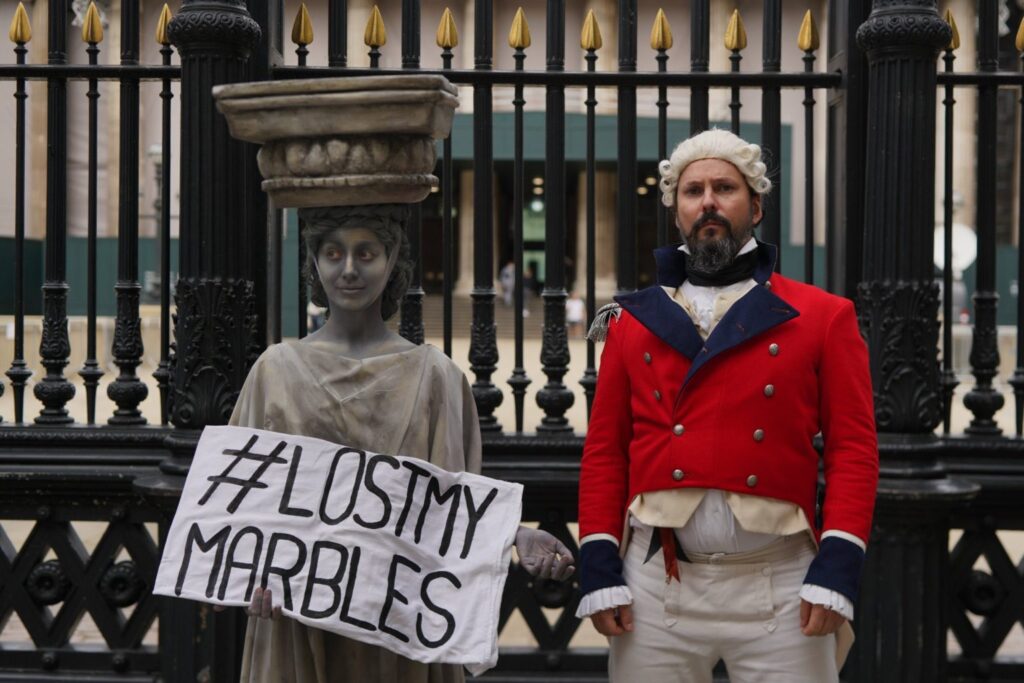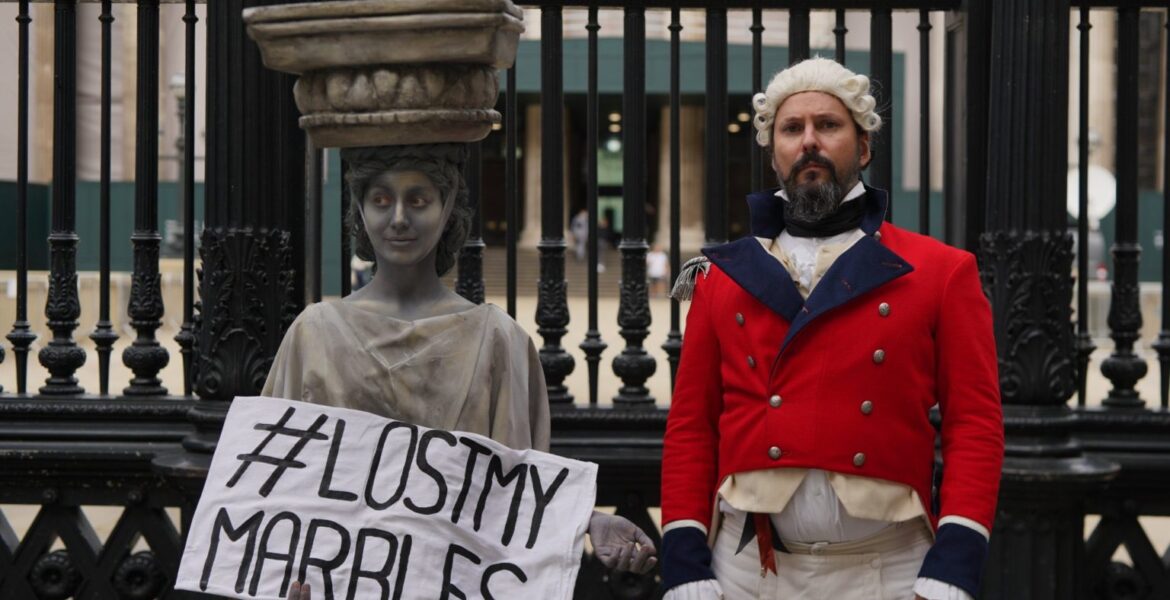
The British Museum opened its doors on Thursday after a 163-day closure sparked by the Covid-19 pandemic.
On the same day, the first visitors to the museum were protestors calling for the return of the Parthenon sculptures to Greece.
The protestors were dressed as Thomas Bruce, the 7th Earl of Elgin who brought them to the UK, and one of the Caryatid sisters represented in the ancient statues. She held a sign featuring the phrase “#LOSTMYMARBLES”.
The 2,500-year-old marble sculptures have been the subject of dispute for over three decades, with Greece and the international community repeatedly calling on the British Museum to return them to their place of origin.
The sculptures were ‘violently’ and illegally removed from the Parthenon by Lord Elgin in the 1800s and sold to the British Museum.
The British Museum has consistently refused to return the priceless marbles.
The marble friezes that are on display at the British Museum, make up approximately 60% of the total remaining sculptural material. The need for their reunification with the other 40% in Athens, is a cultural imperative, Professor Dimitrios Pandermalis stressed.
This is not the first protest at the museum regarding the return of the Parthenon Sculptures. Last year, Greek singer-songwriter Hellena released an inspiring composition entitled “The Parthenon Marbles – Bring Them Back” and performed it live in the British Museum’s Parthenon Gallery.
Greek students from Crete on a school excursion to London, last year also sat in front of the Caryatid marble and sang “Tzivaeri”, which is a Greek song describing the suffering and ongoing battle of Greeks living abroad. The students symbolically sang this to the Caryatid marble, as they believe the Greek Sculptures are suffering from being in a foreign land.
Greek Prime Minister Kyriakos Mitsotakis, told British newspaper the Observer that he called on British Prime Minister Boris Johnson to return the Parthenon Sculptures to Athens for 2021, the bicentennial celebration of Greek War of Independence. He added that he is willing to allow treasures that have never been shown abroad before to be exhibited in London in exchange for the Parthenon Sculptures being returned to Athens for 2021.
UNESCO itself strongly supports the need to resolve the issue by returning the sculptures through negotiations between the two sides.
The last survey on the issue of the restitution of the Parthenon Sculptures was conducted by the UK government in 2018 with 2658 adults surveyed. The survey found that 56% of respondents believed they should be returned to Greece, with 20% objecting to their return and a surprising 24% responding they “don’t know.”
Greece is going to host an international meeting next year bringing all the committees together for the official launch of the new campaign.

